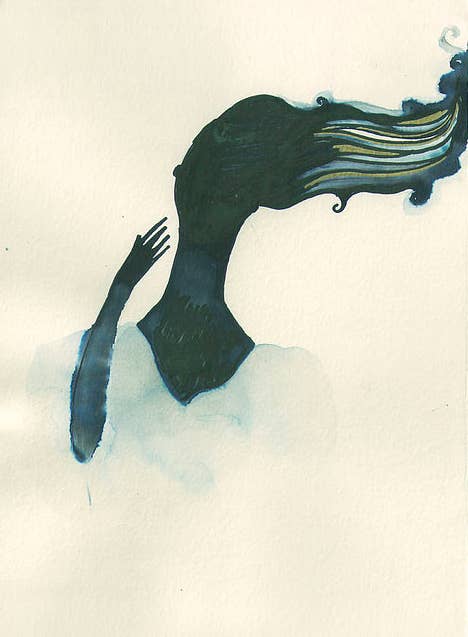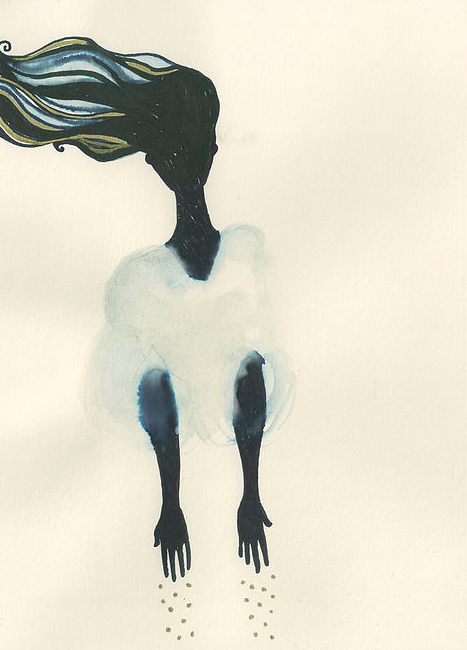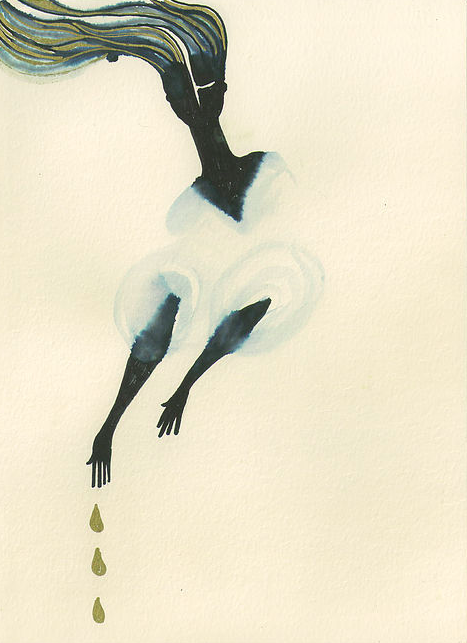
This post is a personal account of how I've been dealing with depression (with some help from a psychiatrist and a therapist). I am not a medical professional, so talk to your doctor if you think you’re depressed. But I do hope this can help you or someone you know who may have a mood disorder, and that it might shed a little light on such a cloudy subject.
1. Generally speaking, a lot of people misunderstand depression. So while you are dealing with depression, chances are you will run into some people who have some misconceptions about it.
"Why don't you just get out and get some exercise?" is just one of the many typical questions you might hear from people who don't fully understand depression as a mood disorder. There is a huge misconception that depression has to do with how much willpower you may or may not have, when it does not. But a lot of people won't know this, and you may even surprise yourself with what you didn't know or understand about depression. There's a lot of stigma surrounding discussions on mental health, and having a conversation about it is important.
2. Sharing your experience with depression will probably be a lot different from what you had imagined.
Even if you post about mental health for BuzzFeed like I do, it's still not easy. You may feel embarrassed and would rather keep it to yourself for now, or share the diagnosis with just a handful of people until you feel comfortable with it. Experiencing mental health issues is NO different from having physical health issues, and you won't know exactly how you'll react when you're going through it.
3. Other people's reactions may also be different from what you expected.
It happens. Even people who have depression themselves may react negatively, for example. You can use that as a filter to distance yourself from people who aren't good for you anyway, and try to build your relationships with those who do you good. But only do so after you've taken care of yourself and are feeling nourished. There's no rush; in time, everything will come together.

4. Depression can slip under your radar, especially if you already happen to be an introvert.
People who are depressed might cry, spend a lot of their time in quiet and experience fatigue from time to time, but so can people who aren’t depressed. Check this list of depression symptoms to find out more. But not everyone will exhibit all these symptoms and/or symptoms won't always be so obvious — especially if you are already the introverted or withdrawn type.
5. You NEED to ask for help, but that requires a lot of strength, especially if your mind is telling you otherwise.
Depending on how you're feeling, you may not really even feel like getting help. But ask for help. Please. Talk to a friend, a therapist, or contact the National Suicide Prevention Lifeline.
What you're feeling are the symptoms of an illness. You are not feeling like yourself. This is not who you really are. There is treatment for it. And yes, as is the case with many other illnesses, depression can also be chronic, but there is treatment to help you get relief and feel better.
Asking for help requires a great deal of inner strength, and even more so when you don't feel like helping yourself, but please tap into this strength and get help. You would seek treatment if you had a bad case of the flu or a broken bone. It's no different with mental health.
6. It might take some time before you and your doctor find the right treatment for you, but you'll know when it starts working. And it will.
There are various forms of treatment and a handful of antidepressants that can be prescribed. If your psychiatrist prescribes you one, you might get it right on the first try, but it also might take a few tries before you find the one that's right for you.
A friend told me that as soon as he started taking medication everything changed, just like that. It wasn't quite like that for me on the first try, not even the second, or the third. But when it finally kicked in, it was practically instantaneous. Keep in mind it can take 4 to 6 weeks, or longer, for some antidepressants to start working. Talk to your doctor about when you might see an improvement.

7. Even while I was receiving treatment for depression, I still had great days and bad days.
The first change I noticed is that l started experiencing more days where I felt happy and upbeat – which didn't happen very much, if at all, before treatment. Keep in mind that you might still have sad & gloomy gray days, even if treatment is going well.
It's important to communicate well with the professionals who are helping you, so that they can help you understand how normal ups and downs are and when they occur. But it really is such a beautiful thing to be able to have those good days.
8. Apart from medical treatment, I also found it helpful to go to therapy to talk things through.
Since I write for a living, I've always exercised this skill regularly, for better or worse. But the dynamic completely changes when you have to start talking about the abstract things you're feeling and thinking, and having to articulate them.
For that reason, I found psychotherapy was essential in conjunction with medical treatment. You might find you are able to express yourself through talking, writing, or drawing, even if you don’t think you have it in you.
Reading The Bell Jar by Sylvia Plath really helped me. It is a largely biographical story of a woman's experience with depression. This book put a lot of what I was feeling into words.
9. You may have forgotten who you really are because of this illness.
After treatment started to take effect, I heard four people near and dear to my heart tell me that I was back to being the person they knew. They all said it in their own little way of course, and all of them – perhaps without realizing it – really touched me.
For me, depression is like a thick fog that not only darkened my days, but my memories as well. Today I am rediscovering who I am, because it's as if I had almost completely forgotten. What did I like to read? What music did I listen to? What made me laugh? All of this is a bit new – and it sure makes for lots of conversation with my therapist and my psychiatrist.

10. Each person is an individual, and every depressed person is an individual with depression, which is why no two cases are exactly the same.
This post talks about my own personal experience with depression. Hopefully, just being able to find out that someone may be going through something similar is a comforting thought, and it's the reason I am writing this for you. Ask for help, because it can get better.
The National Suicide Prevention Lifeline is 1-800-273-8255. Other international suicide helplines can be found at befrienders.org.
Illustrations in this post from Eva Uviedo's "Sombras" series.
Also see:
This post was translated from Portuguese.
